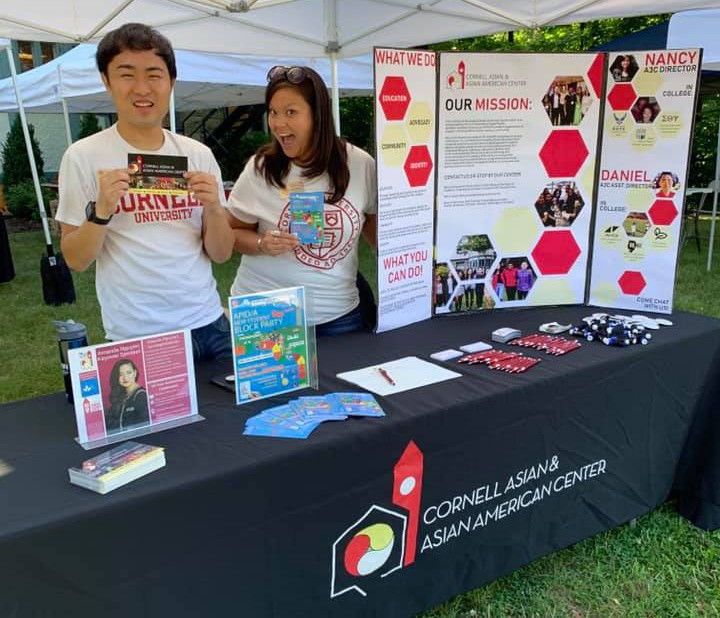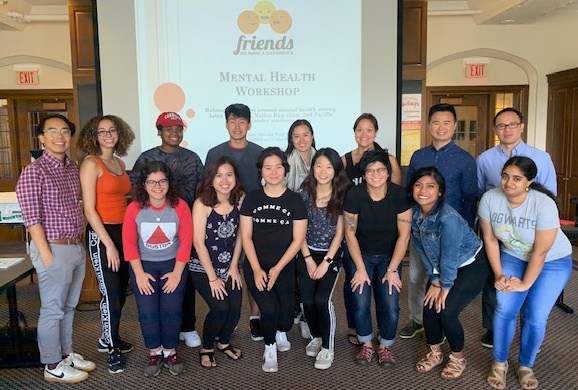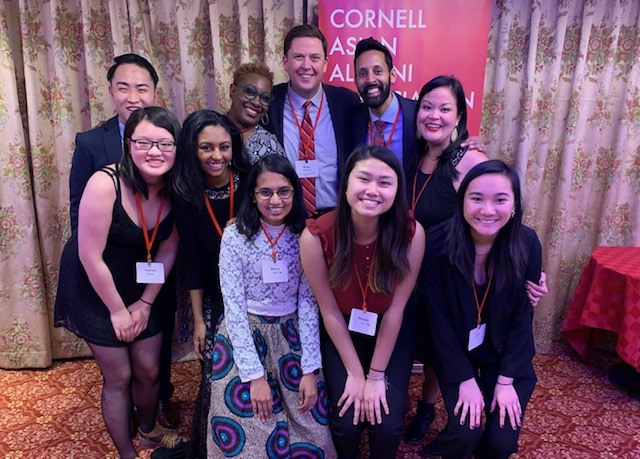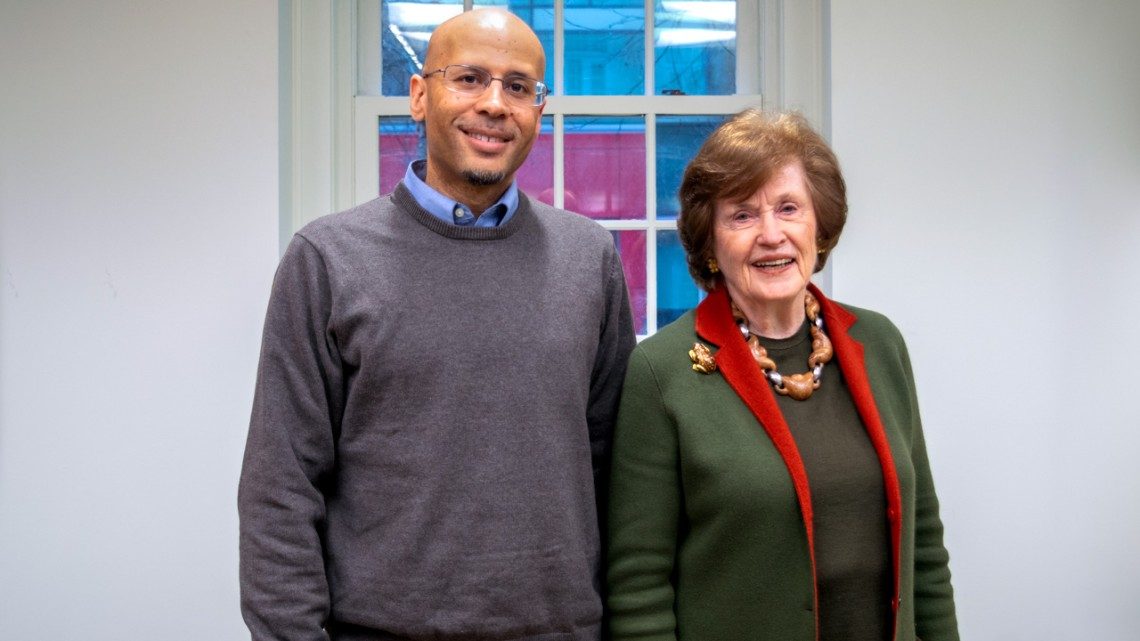Cornell’s Asian & Asian American Center (A3C) is a second campus home for thousands of students each year. From programming that celebrates the importance of Asian cultures to a space for students to explore their identities, the center offers a strong sense of community and family.
Nancy Martinsen, the Kent G. Sheng ’78 Associate Dean of Students and Director of the Asian & Asian American Center, says the center also plays a crucial role in starting difficult but necessary conversations about bias, culture, mental health, and much more.
In this kind of a space, our students can learn about themselves, form new friendships, and develop skills that will help them lead and thrive.
Asian and Asian American students, Martinsen explains, often have cultural expectations or experiences that are different from those of students from other backgrounds. Being able to talk about these experiences openly as a group is incredibly valuable.
“The A3C offers students who identify as Asian or Asian American a space in which their race, ethnicity, and culture is affirmed and normalized,” says Vijay Pendakur, the Robert W. and Elizabeth C. Staley Dean of Students. “In this kind of a space, our students can learn about themselves, form new friendships, and develop skills that will help them lead and thrive. In addition to this central mission, the A3C also offers numerous opportunities to non-Asian identifying students to engage in cross-cultural learning and growth, thereby enriching the entire fabric of campus.”
This growth isn’t always easy, but gives students a chance to have hard conversations and practice kindness.

Importance of peer support
Programming through the A3C like the New Student Block Party and the C.L.I.M.B. (Cornell Leadership, Identity, Mentorship & Beyond) Program help bring together students from different communities to celebrate their heritage and share their cultures. These events help create a positive environment for all students, and help mitigate bias.
“I try to think about what would it look like if I could convince students that they aren’t alone,” Martinsen says. “If they participate in this center, they would feel a sense of family.”
This sense of community and family makes Cornell feel more navigable for many. Martinsen strives to bring these values to every event the center plans or participates in, and to help students recognize the value of their identities.
“My vision for the center is to find a way to create more opportunities for community,” Martinsen emphasizes. “I want to help students understand the beauty of their culture.”

Through the A3C, students are also given the chance not only to discuss their own well-being, but to take what they learn back to their peers. Students are trained on how to start conversations in smaller peer groups and help each other navigate the stress many Cornellians feel regardless of identity.
“I know what it’s like to be in darkness and I know what it’s like to rise above that,” Martinsen says, of sharing her own college experience with the students she supports. “I know how important it is for someone who looks like me to talk about those things openly. It’s a taboo subject for so many students.”
Students learn how to be open about their own struggles, and speak up when they need help. They learn tools they need to be advocates for each other.
Adding water to good roots
Staff and students alike believe in the center’s importance, and this passion is shared by many alumni involved with Cornell’s Asian Alumni Association (CAAA).
“They are so giving, and so reachable,” says Martinsen, of CAAA members. “I love that they care and that they are involved.”
Kent Sheng ’78 made a gift to endow the directorship of the A3C to mark the center’s 10th anniversary. A longtime supporter of the center and co-founder of CAAA, Sheng says the A3C teaches students to get away from the “it is what it is” mentality – an important lesson that students can only learn outside the classroom.
This gift is adding water to the good roots A3C has already grown.
Sheng says he wanted his gift to lay a foundation of support for the future, giving the center and Martinsen the flexibility and resources needed to help continue its many great programs. He also hopes it inspires other alumni to give back.
“This gift is adding water to the good roots A3C has already grown,” Sheng says. “Students have the ability to shape their futures. I hope the center gives these students opportunities that they reach out to grab.”
Dean Vijay Pendakur agrees. “In the long term,” he says, “I hope for the A3C to expand its engagement to even greater numbers of Asian and Asian American students who could benefit greatly from the empowerment and skill-building programs that the center offers.”

Staying connected through hard times
Martinsen intends for the A3C to continue being a powerful resource to Asian and Asian American Cornell students, even while studying online from their own homes for the remainder of the spring semester.
“We’re making it a priority to reach out to students and figure out what they need,” she says.
“These are hard, uncertain times in which the role of a supportive community can make a major difference in our students’ holistic wellbeing,” says Pendakur. “The A3C can convene numerous community gatherings, across a diverse array of platforms, to offer students a chance to grow and share with their peers, even while we are maintaining physical distance.”
This is how you can turn to your culture to empower you and build resilience.
Coming together to recognize bias and racism towards Asian and Asian American communities and working to combat it, Martinsen says, is crucial. In the wake of the COVID-19 crisis, it is especially important to value and support all community members.
“We need allies,” Martinsen explains. “The students who are graduating, when they get a job, are they going to experience harassment and racism? How can I come up with ways to empower students and show them we can move past this, and this is how you can showcase your culture in a positive way? This is how you can turn to your culture to empower you and build resilience.”
The center will continue with its mission to educate, build community, and celebrate diversity regardless of the campus and world situation. Martinsen hopes the wider Cornell community can rally around students impacted by the current crisis and create positive change.





